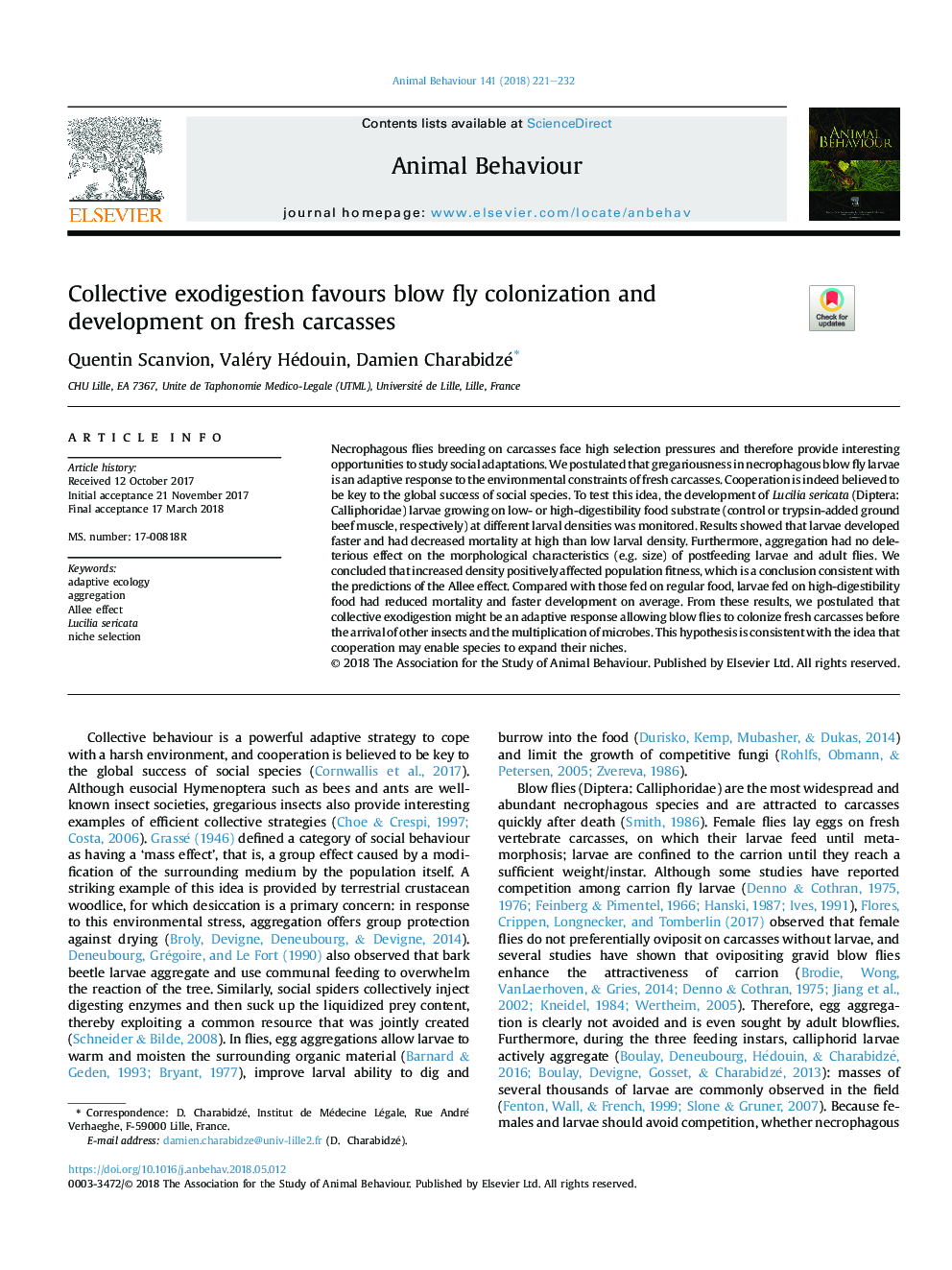| کد مقاله | کد نشریه | سال انتشار | مقاله انگلیسی | نسخه تمام متن |
|---|---|---|---|---|
| 8488507 | 1552187 | 2018 | 12 صفحه PDF | دانلود رایگان |
عنوان انگلیسی مقاله ISI
Collective exodigestion favours blow fly colonization and development on fresh carcasses
دانلود مقاله + سفارش ترجمه
دانلود مقاله ISI انگلیسی
رایگان برای ایرانیان
موضوعات مرتبط
علوم زیستی و بیوفناوری
علوم کشاورزی و بیولوژیک
علوم دامی و جانورشناسی
پیش نمایش صفحه اول مقاله

چکیده انگلیسی
Necrophagous flies breeding on carcasses face high selection pressures and therefore provide interesting opportunities to study social adaptations. We postulated that gregariousness in necrophagous blow fly larvae is an adaptive response to the environmental constraints of fresh carcasses. Cooperation is indeed believed to be key to the global success of social species. To test this idea, the development of Lucilia sericata (Diptera: Calliphoridae) larvae growing on low- or high-digestibility food substrate (control or trypsin-added ground beef muscle, respectively) at different larval densities was monitored. Results showed that larvae developed faster and had decreased mortality at high than low larval density. Furthermore, aggregation had no deleterious effect on the morphological characteristics (e.g. size) of postfeeding larvae and adult flies. We concluded that increased density positively affected population fitness, which is a conclusion consistent with the predictions of the Allee effect. Compared with those fed on regular food, larvae fed on high-digestibility food had reduced mortality and faster development on average. From these results, we postulated that collective exodigestion might be an adaptive response allowing blow flies to colonize fresh carcasses before the arrival of other insects and the multiplication of microbes. This hypothesis is consistent with the idea that cooperation may enable species to expand their niches.
ناشر
Database: Elsevier - ScienceDirect (ساینس دایرکت)
Journal: Animal Behaviour - Volume 141, July 2018, Pages 221-232
Journal: Animal Behaviour - Volume 141, July 2018, Pages 221-232
نویسندگان
Quentin Scanvion, Valéry Hédouin, Damien Charabidzé,